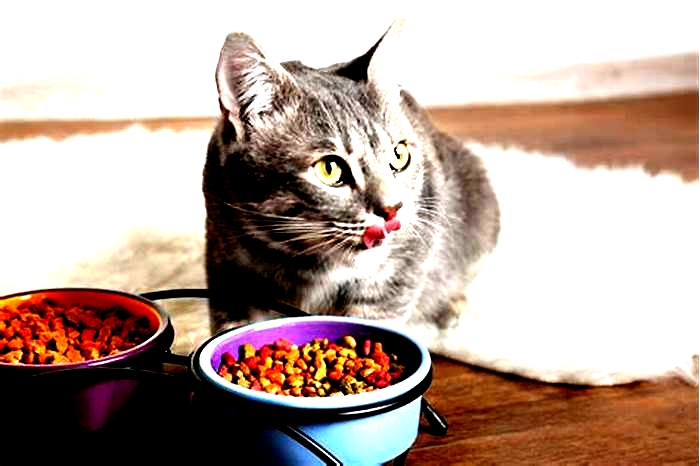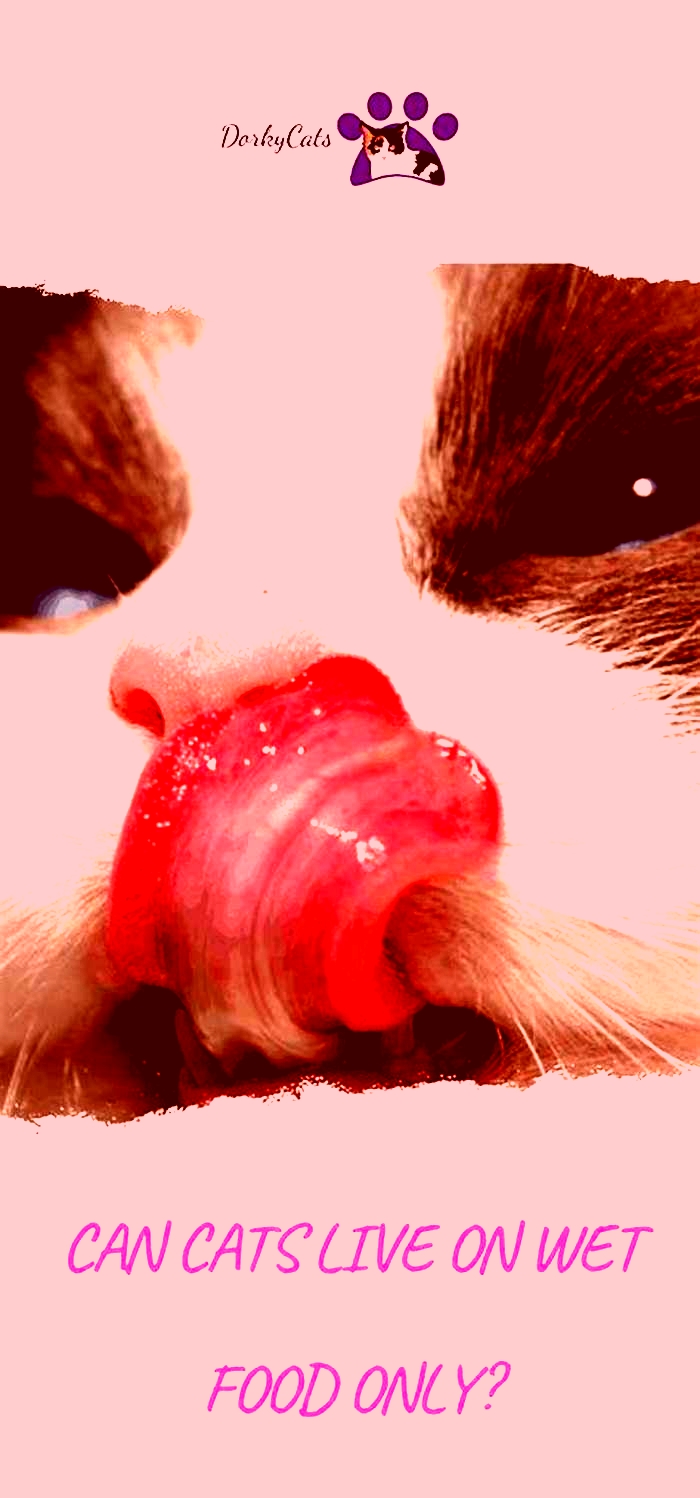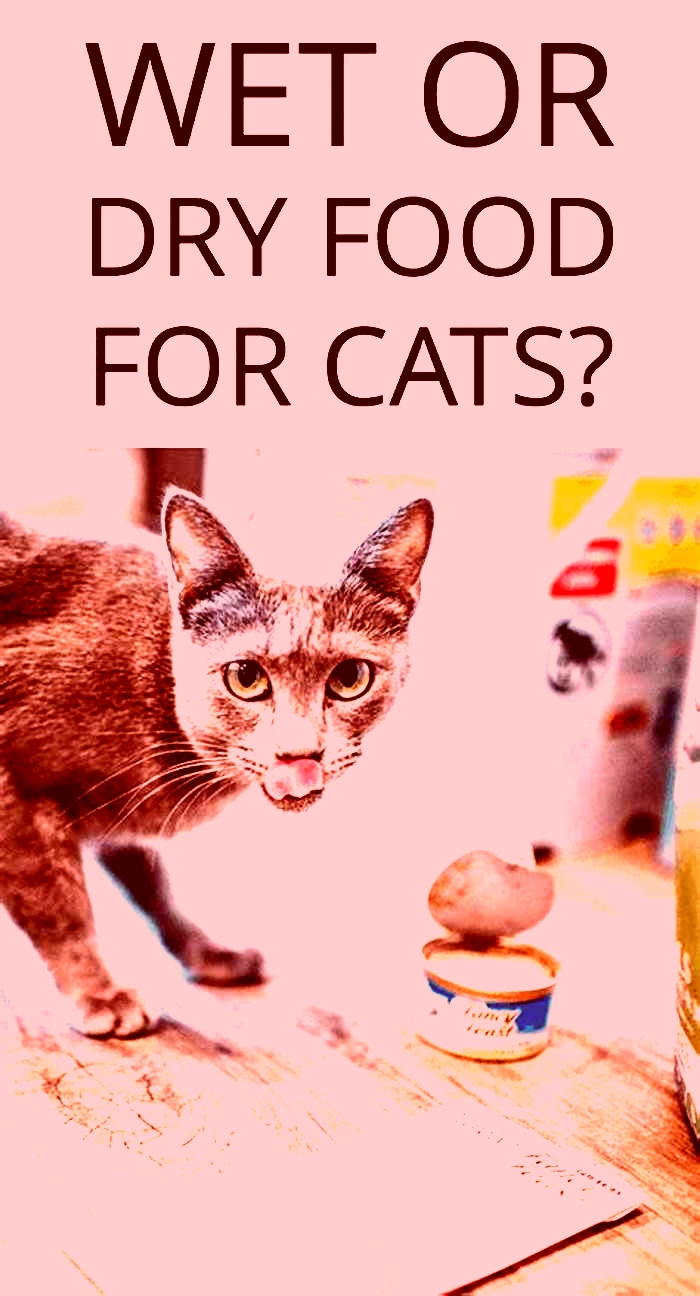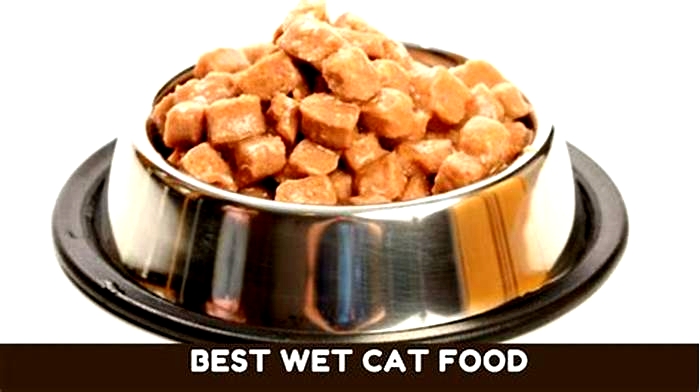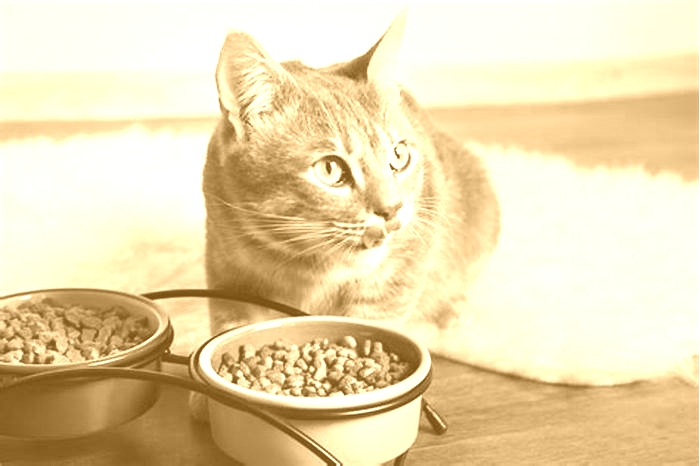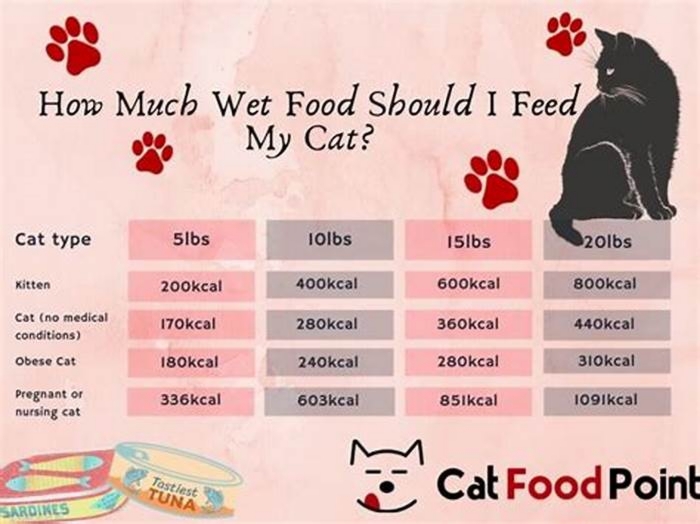What percentage of cats live to 20
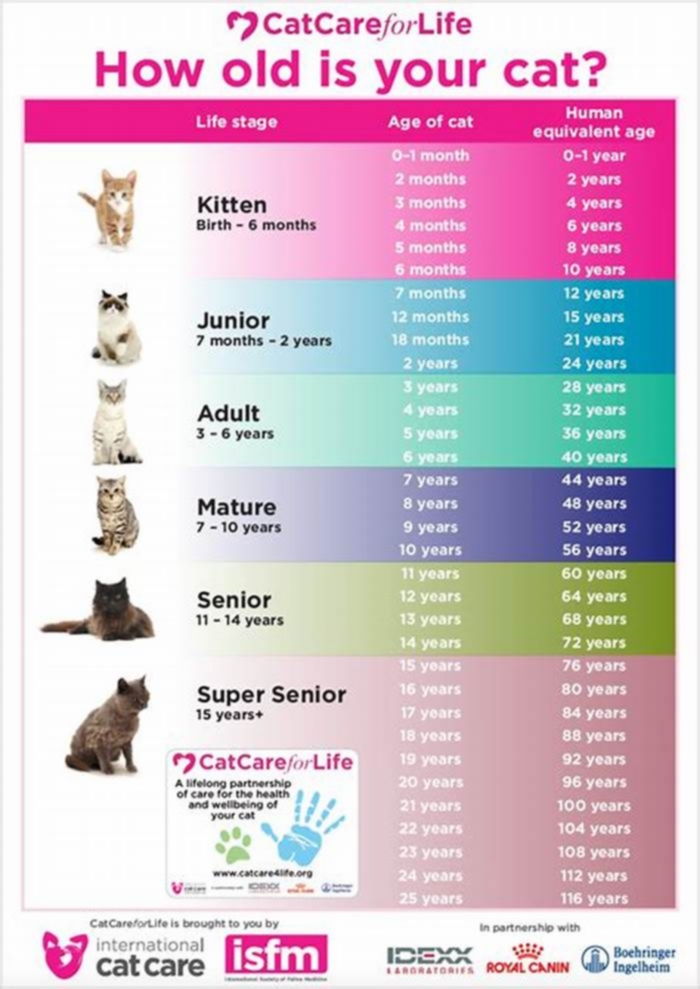
What percentage of cats live to 20?
What percentage of cats live to 20? This is a question asked by a sizeable proportion of internet surfers. The truth of the matter is that we dont have an answer. We cant look it up in a book or on a website because the statistics are not available. No one is counting or doing surveys.
However, 20 years of age is exceptional for a domestic cat, indeed any cat if one takes all cats in all places into consideration. Nearly all domestic cats will die before their 20th birthday. Some will live into their 20s and exceptionally rarely some will live into their 30s.
If one took a sample of 1000 cats Id expect about 5 to live to 20. That is a big guess and in percentages it is 0.5% (half a percent). This is probably being a bit mean. If ten cats in 1000 lived to 20 that would mean 1% of all cats lived to 20. However, it depends on where the cat lives. Tyler (a commenter see below) says it is uncommon for a cat to live to 20 where she lives (I believe she lives in the US). But in other countries it will be much rarer. Perhaps in the US Ill concede that cats uncommonly live to 20. How about that?
Jennifer, a visitor to the site says this:
Vets are now saying it is MUCH more common for cats to live to be in their 20s. Id say Id revise your numbers a lot. Every vet Ive talked to has said theyve had 20 year old cats in their practice..
which clearly indicates a trend towards more 20+ year-old domestic cats. Good. I believe she lives in the USA also. The increase in lifespan probably follows that of humans due to improved health care. Her comment indicates to me that around 2% of cats are aged 20 or over.
Rather than guessing percentages it is probably more sensible to state that a small percentage of cats live to 20. Twenty is almost 100 years of age for a person.
Note: We are discussing domestic cats. The title refers to cats in general which should include strays and ferals. Clearly these almost never live to 20.
P.S. Around 40 years ago the expected lifespan of domestic cats was between 9 and 15 years with 16 not being unusual (source: Dr Desmond Morris). You can see how are expectations have improved which is probably due to improved veterinary services.
Associated Posts
5 curious discoveries about long-living cats

UPDATE December 2011: The eBook is ready! Get itFREE here.
Would you believe the world record for feline lifespan, verified by Guinness World Records, is a 38 year-old cat?
Yep, a cat named Cream Puff.
In fact, most of us have met or heard of someone who had a 20 year-old (or older!) cat.
This kind of information makes me crazy and gives me hope that there may be more we can do to help our cats live longer.
Which means I had to investigate it with my usual obsessiveness.
As you may recall, I ran a quick, random a survey several weeks ago and closed it after it reached 30 cats. A wide range of folks were invited to participate.
I thought youd like to know 5 things I found very interesting about the 20+ year-old cat survey results. But first
Can we really make a difference? What about genes?
Genes are a funny thing. We tend to assume they predetermine longevity because its just easier to grasp all or nothing concepts.
Yet the influence of genes on longevity is complicated and small. Based onhuman studies at Boston University, longevity is determined by about 70-80% environment and lifestyle and only 20-30% genes.
How can this be? As Jeffrey Bland, Ph.D. explains, science has discovered that genetic expression can actually be modified throughout our lives. He speaks of how nutrition is one factor that modifies it.
Very few people seem to know this yet!
So I say yes, you bet we can make a difference. More on this soon, with my upcoming eBook, 6 Natural Ways to Help Your Cat Live Longer. (Which will be free as a gift to newsletter subscribers sign up below.)
Now, copied straight from that upcoming eBook, are 5 things you may find interesting about the survey results.
1. Most of the cats had wet food as at least part of their diet and most did not use chemical flea control.
The presence of wet food and lack of flea control chemicals were the factors that stood out the most among these long-living cats.
The few 20+ year old cats who were not fed any wet food and were indoors (unable self-supplement their diet) had other important beneficial factors working for them: most lived completely free of pesticides, smoke, and chemical flea control!
2. Almost every cat had at least two beneficial factors going for them.
From a list of beneficial health factors (practical things we can all do for our cats), almost all the long-living cats had two or more of those factors going for them.
I was able to create a point system for these beneficial factors and find that almost all the 20+ year-old cats had at least 5 points from the system most had more.
I was also able to look at the two cats Ive had who died under age 20, and realize they would not have had many points in this system, much to my regret. My family and I were not aware of these things when I was younger.
3. One woman had a magic longevity touch.
Bernadette E. Kazmarski, an artist and blogger at The Creative Cat, has had two 20+ year old cats, plus a cat who made it to 19 and another who is currently 19 and on the way to 20!
None of these cats are related and none are of any special breed, so we cant attribute to shared genetics. Bernadettes story speaks loudly for a focus on food because her cats did have toxin exposure for some time, yet she did a lot to give them a healthy diet.
It was mainly a grain-free, wet food diet, including some homemade food, though there were four years when all she could afford was dry food.
She made a point of giving her cats senior cats extra vitamins and all the wet food they wanted.
Some of her long-living cats did have health issues (one came to her with signs of kidney problems at age 15), but through devotion, love, and good nourishment she kept her long-living cats going to a ripe old age.
4. It inspired a closer look at grass and insects.
In spite of all the extra risks cats who go outdoors face, half of the of the 20+ year-old cats did have regular outdoor access.
I have a theory that, in addition to more exercise and supplementing their diet with the raw food called prey, eating insects and grass helps promote the longevity of these cats.
I did some digging and confirmed that insects, grass, and soil microorganisms may have more health benefits for cats than we realize.
That doesnt mean the outdoors is required for longevitythere are other ways cats can get these benefits.
5. Most respondents had a very close or soulful relationship with the long-living cat.
93% of the people in the survey said their relationship with the long-living cat was special, very close, or even soulful or spiritual.
So many of us have lost feline soul mates who were under age 20, so I dont want anyone to worry that they werent close enough to their cat: If you were heartbroken when they died, you were very close.
However, a couple people mentioned that they suspected their cat lived so long because he or she had a unique purposeeither to be there for a family member or even for other cats or kittens.
Do you think that sometimes cats manage to live longer for someone elsethat having a special purpose gives them a longevity boost? I wonder.
Similar Posts
What Percentage of Cats Live to?
This article delves into the fascinating world of feline longevity, shedding light on the average lifespan of cats and the various factors that play a role in determining how long our beloved furry friends live. Cats are known for their mysterious and independent nature, but when it comes to their lifespan, there are certain factors that can significantly influence it.
Genetics, diet, exercise, and veterinary care are key players in the game of cat longevity. Just like humans, cats inherit certain genetic traits from their parents, which can affect their overall health and lifespan. Additionally, providing a balanced and nutritious diet is crucial in ensuring that cats receive the necessary nutrients for a long and healthy life. Regular exercise not only keeps our feline companions physically fit but also helps prevent obesity, a condition that can have detrimental effects on their lifespan. Lastly, routine veterinary care, including vaccinations and regular check-ups, plays a vital role in detecting and addressing any health issues early on, ultimately contributing to a longer lifespan.
Factors Affecting Cat Lifespan
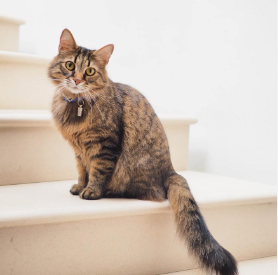 When it comes to the lifespan of our feline friends, several factors come into play. Genetics, diet, exercise, and veterinary care all play a crucial role in determining how long a cat lives.
When it comes to the lifespan of our feline friends, several factors come into play. Genetics, diet, exercise, and veterinary care all play a crucial role in determining how long a cat lives.
Genetics:Just like humans, cats inherit certain genetic traits from their parents. These genetic factors can influence their overall health and longevity. Some cats are genetically predisposed to certain diseases or conditions that can affect their lifespan.
Diet:Proper nutrition is essential for a cats well-being and longevity. A balanced diet that meets their nutritional needs is crucial. Cats require a diet rich in high-quality proteins, essential fatty acids, vitamins, and minerals to thrive.
Exercise:Regular physical activity is vital for maintaining a healthy weight and overall well-being. Cats that engage in regular exercise are less likely to develop obesity-related health issues, which can significantly impact their lifespan.
Veterinary Care:Regular veterinary check-ups and preventive care are essential for ensuring a cats health and detecting any potential health issues early on. Vaccinations, parasite control, dental care, and routine examinations all contribute to a cats longevity.
By paying attention to these factors and providing our feline companions with the care they need, we can help them live long and happy lives.
Common Health Issues in Cats
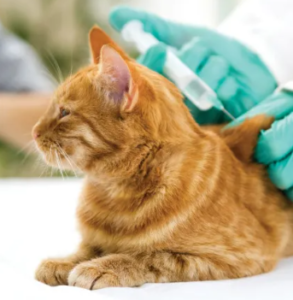 Common health issues in cats can have a significant impact on their lifespan. Three prevalent health conditions that affect cats are obesity, dental disease, and kidney disease. These conditions can lead to various complications and reduce a cats overall quality of life.
Common health issues in cats can have a significant impact on their lifespan. Three prevalent health conditions that affect cats are obesity, dental disease, and kidney disease. These conditions can lead to various complications and reduce a cats overall quality of life.
Obesity is a growing concern among cats. Just like in humans, obesity in cats can lead to a range of health problems, including diabetes, joint issues, and heart disease. Cats that are overweight or obese are more likely to develop these conditions, which can significantly shorten their lifespan. It is important for cat owners to monitor their pets weight and ensure they are maintaining a healthy body condition.
Dental disease is another common health issue in cats. Poor dental hygiene can lead to gum disease, tooth decay, and oral infections. If left untreated, dental disease can cause pain, difficulty eating, and even organ damage. Regular dental care, including brushing your cats teeth and providing dental treats or toys, can help prevent these issues and promote a longer lifespan.
Kidney disease is a serious condition that affects many cats, especially as they age. Chronic kidney disease can lead to kidney failure and a decline in overall health. Early detection and management of kidney disease can help slow its progression and improve a cats quality of life. Regular veterinary check-ups and a balanced diet can play a crucial role in maintaining kidney health.
By addressing these common health issues and providing proper care, cat owners can help ensure their feline companions live long and healthy lives. Regular veterinary check-ups, a balanced diet, and good dental hygiene are essential for promoting longevity in cats.
Obesity and Its Effects
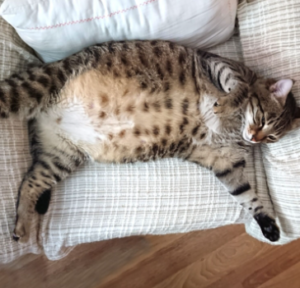 Obesity is a serious health issue that affects not only humans but also our feline companions. It is essential to understand the dangers of obesity in cats and how it can significantly impact their overall health and lifespan.
Obesity is a serious health issue that affects not only humans but also our feline companions. It is essential to understand the dangers of obesity in cats and how it can significantly impact their overall health and lifespan.
When a cat becomes overweight or obese, it puts extra strain on their joints, bones, and internal organs. This excess weight can lead to various health problems, including diabetes, heart disease, respiratory issues, and arthritis. These conditions can significantly reduce a cats quality of life and shorten their lifespan.
Furthermore, obesity in cats can also lead to a decreased immune system function, making them more susceptible to infections and other illnesses. It can also affect their mobility, making it harder for them to engage in physical activity and exercise, further exacerbating the problem.
To combat obesity in cats, it is crucial to provide them with a balanced and nutritious diet. Feeding them high-quality cat food in appropriate portions and avoiding excessive treats can help maintain a healthy weight. Regular exercise, such as interactive play sessions and providing climbing structures, can also help cats burn calories and stay active.
Overall, understanding the dangers of obesity in cats and taking proactive measures to prevent and manage it is essential for their well-being and longevity. By maintaining a healthy weight, cats can live longer, happier lives free from the complications associated with obesity.
Diabetes and Obesity
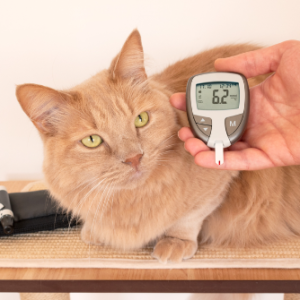 Obesity is a growing concern among cats, and it is closely linked to the development of diabetes. When a cat is overweight or obese, their bodys ability to regulate blood sugar levels becomes compromised, leading to a higher risk of developing diabetes. This chronic condition can have a significant impact on a cats lifespan and overall health.
Obesity is a growing concern among cats, and it is closely linked to the development of diabetes. When a cat is overweight or obese, their bodys ability to regulate blood sugar levels becomes compromised, leading to a higher risk of developing diabetes. This chronic condition can have a significant impact on a cats lifespan and overall health.
Diabetes in cats is characterized by high blood sugar levels due to either insufficient insulin production or the bodys inability to effectively use insulin. Insulin is a hormone that helps regulate blood sugar levels and allows cells to use glucose for energy. When a cat is obese, their fat cells release substances that can interfere with the normal functioning of insulin, leading to insulin resistance.
Obese cats are more likely to develop type 2 diabetes, which is the most common form of diabetes in cats. This condition can lead to a range of health complications, including kidney disease, high blood pressure, and heart disease. Additionally, diabetes can weaken a cats immune system, making them more susceptible to infections and other illnesses.
To prevent diabetes and its detrimental effects on a cats lifespan, it is crucial to maintain a healthy weight through proper diet and regular exercise. Obesity can be managed and prevented by feeding cats a balanced diet that is appropriate for their age, size, and activity level. Regular exercise, such as interactive play sessions and access to climbing structures, can help cats burn calories and maintain a healthy body weight.
Regular veterinary check-ups are also essential to monitor a cats weight, assess their overall health, and detect any early signs of diabetes. If a cat is diagnosed with diabetes, proper management and treatment, including insulin therapy and dietary changes, can help control the condition and improve their quality of life.
Joint Problems and Obesity
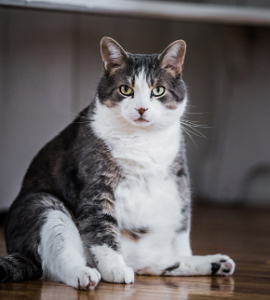 Obesity in cats not only poses risks to their overall health but also has a significant impact on their joint health and mobility. Cats that are overweight or obese are more likely to develop joint problems, such as arthritis, which can cause pain and discomfort. The excess weight puts additional strain on the joints, leading to wear and tear over time.
Obesity in cats not only poses risks to their overall health but also has a significant impact on their joint health and mobility. Cats that are overweight or obese are more likely to develop joint problems, such as arthritis, which can cause pain and discomfort. The excess weight puts additional strain on the joints, leading to wear and tear over time.
When a cats joints are affected by obesity, it can limit their mobility and ability to engage in physical activities. Cats with joint issues may find it difficult to jump, climb, or even walk comfortably. This lack of movement can further contribute to weight gain and muscle loss, creating a vicious cycle.
Joint problems not only affect a cats quality of life but can also shorten their overall lifespan. The pain and discomfort associated with joint issues can lead to a sedentary lifestyle, which increases the risk of obesity and related health problems. Additionally, limited mobility can make it challenging for cats to perform essential tasks, such as grooming, leading to poor hygiene and potential infections.
To prevent joint problems and promote a healthy lifespan in cats, it is crucial to manage their weight through a balanced diet and regular exercise. Providing a nutritious diet that meets their specific needs and encouraging physical activity can help maintain a healthy weight and reduce the strain on their joints. Regular veterinary check-ups can also help identify any early signs of joint issues and allow for timely intervention to minimize their impact on a cats overall well-being.
Dental Disease and Its Impact
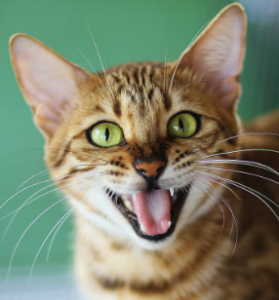 Dental disease in cats can have serious consequences on their overall health and lifespan if left untreated. The buildup of plaque and tartar on their teeth can lead to gum inflammation and infection, known as gingivitis. If gingivitis is not addressed promptly, it can progress to periodontal disease, which affects the structures supporting the teeth, including the gums, ligaments, and jawbone.
Dental disease in cats can have serious consequences on their overall health and lifespan if left untreated. The buildup of plaque and tartar on their teeth can lead to gum inflammation and infection, known as gingivitis. If gingivitis is not addressed promptly, it can progress to periodontal disease, which affects the structures supporting the teeth, including the gums, ligaments, and jawbone.
Untreated dental disease can result in various complications for cats. Infections can spread from the mouth to other parts of the body, such as the heart, liver, and kidneys, leading to systemic illnesses. Cats with dental disease may experience pain while eating, which can cause them to lose their appetite and become malnourished. Additionally, damaged teeth and gums can make it difficult for cats to groom themselves properly, leading to poor coat condition and skin problems.
Regular dental care, including professional cleanings and at-home oral hygiene, is crucial in preventing and managing dental disease in cats. Brushing their teeth with cat-friendly toothpaste, providing dental treats or toys, and feeding them a balanced diet that promotes dental health can all contribute to maintaining their oral hygiene. Routine veterinary check-ups should also include a thorough examination of their teeth and gums to identify any dental issues early on.
Promoting Longevity in Cats
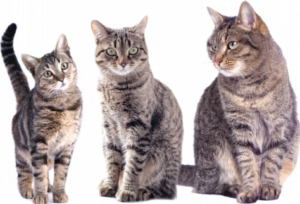 Ensuring the well-being of our feline friends is essential for maximizing their lifespan. By following a few key tips and advice, we can provide them with the best possible care. Here are some ways to promote longevity in cats:
Ensuring the well-being of our feline friends is essential for maximizing their lifespan. By following a few key tips and advice, we can provide them with the best possible care. Here are some ways to promote longevity in cats:
- Proper Nutrition:A balanced diet is crucial for a cats overall health and longevity. Ensure they are receiving the right nutrients by feeding them high-quality cat food that meets their specific dietary needs. Consult with a veterinarian to determine the appropriate diet for your cat.
- Regular Exercise:Physical activity is important for maintaining a healthy weight and preventing obesity in cats. Engage your cat in play sessions using toys or incorporate interactive activities that encourage movement. This will not only keep them fit but also provide mental stimulation.
- Routine Veterinary Care:Regular check-ups and vaccinations are vital for detecting any potential health issues early on and preventing them from escalating. Schedule annual visits to the veterinarian to ensure your cats well-being and address any concerns promptly.
Additionally, it is essential to provide your cat with a safe and stimulating environment. Create a comfortable space for them to relax and explore, ensuring they have access to fresh water and a clean litter box. Regular grooming and dental care are also important aspects of their overall health.
By following these tips and providing your cat with the care they need, you can contribute to their longevity and ensure a happy and healthy life for your feline companion.
Balanced Diet and Nutrition
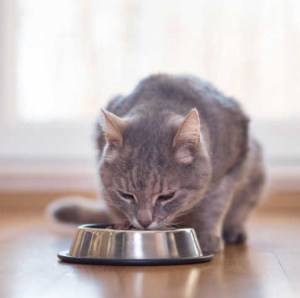 A balanced diet and proper nutrition play a crucial role in maintaining a cats health and extending their lifespan. Just like humans, cats require a well-rounded diet that provides them with the necessary nutrients to thrive. Feeding your cat a balanced diet ensures that they receive the right amount of proteins, carbohydrates, fats, vitamins, and minerals.
A balanced diet and proper nutrition play a crucial role in maintaining a cats health and extending their lifespan. Just like humans, cats require a well-rounded diet that provides them with the necessary nutrients to thrive. Feeding your cat a balanced diet ensures that they receive the right amount of proteins, carbohydrates, fats, vitamins, and minerals.
Proteins are essential for cats as they are obligate carnivores, meaning their bodies require animal-based proteins to function optimally. Including high-quality sources of protein in their diet, such as lean meats or commercial cat food formulated with meat, helps support their muscle development and overall health.
Carbohydrates are another important component of a cats diet, although they should be provided in moderation. Cats are designed to obtain energy from proteins and fats, but small amounts of carbohydrates can be beneficial for digestion and energy production. Opt for complex carbohydrates like whole grains or vegetables, as they provide more nutrition compared to simple carbohydrates.
Fats are a concentrated source of energy and play a vital role in maintaining a cats healthy skin and coat. Including healthy fats in their diet, such as omega-3 fatty acids found in fish oil or flaxseed, can help improve their overall well-being.
Vitamins and minerals are essential for various bodily functions and should be included in a cats diet through balanced meals or supplements. These nutrients support their immune system, bone health, and overall vitality.
Its important to note that cats have specific dietary requirements, and certain foods can be toxic to them. Avoid feeding your cat human foods that are harmful to their health, such as chocolate, onions, garlic, and grapes. Consult with your veterinarian to determine the best diet plan for your cats specific needs.
Exercise and Mental Stimulation
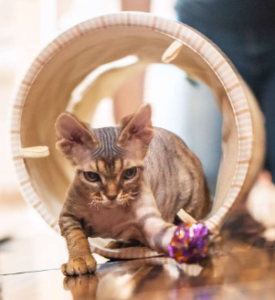 Regular exercise and mental stimulation are crucial for keeping cats healthy and promoting their overall well-being. Physical activity not only helps prevent obesity, but also improves their cardiovascular health, strengthens their muscles, and enhances their flexibility. Engaging in playtime and providing opportunities for exercise can significantly contribute to a cats longevity.
Regular exercise and mental stimulation are crucial for keeping cats healthy and promoting their overall well-being. Physical activity not only helps prevent obesity, but also improves their cardiovascular health, strengthens their muscles, and enhances their flexibility. Engaging in playtime and providing opportunities for exercise can significantly contribute to a cats longevity.
There are various ways to incorporate exercise into a cats daily routine. Interactive toys, such as feather wands and laser pointers, can encourage them to chase and pounce, mimicking their natural hunting instincts. Providing climbing structures, scratching posts, and tunnels can also stimulate their physical activity and provide mental stimulation.
In addition to physical exercise, mental stimulation is equally important for a cats well-being. Engaging their minds with puzzle toys, treat-dispensing toys, and interactive games can prevent boredom and reduce stress. This mental stimulation helps keep their cognitive abilities sharp and can contribute to a longer and healthier life.
Its important to note that the level of exercise and mental stimulation needed may vary depending on a cats age, breed, and overall health. Consulting with a veterinarian can help determine the appropriate amount and type of exercise for your feline companion.
In conclusion, incorporating regular physical activity and mental stimulation into a cats daily routine is vital for their health and longevity. By providing opportunities for exercise and engaging their minds, we can help keep our furry friends happy, prevent obesity, and improve their overall lifespan.

